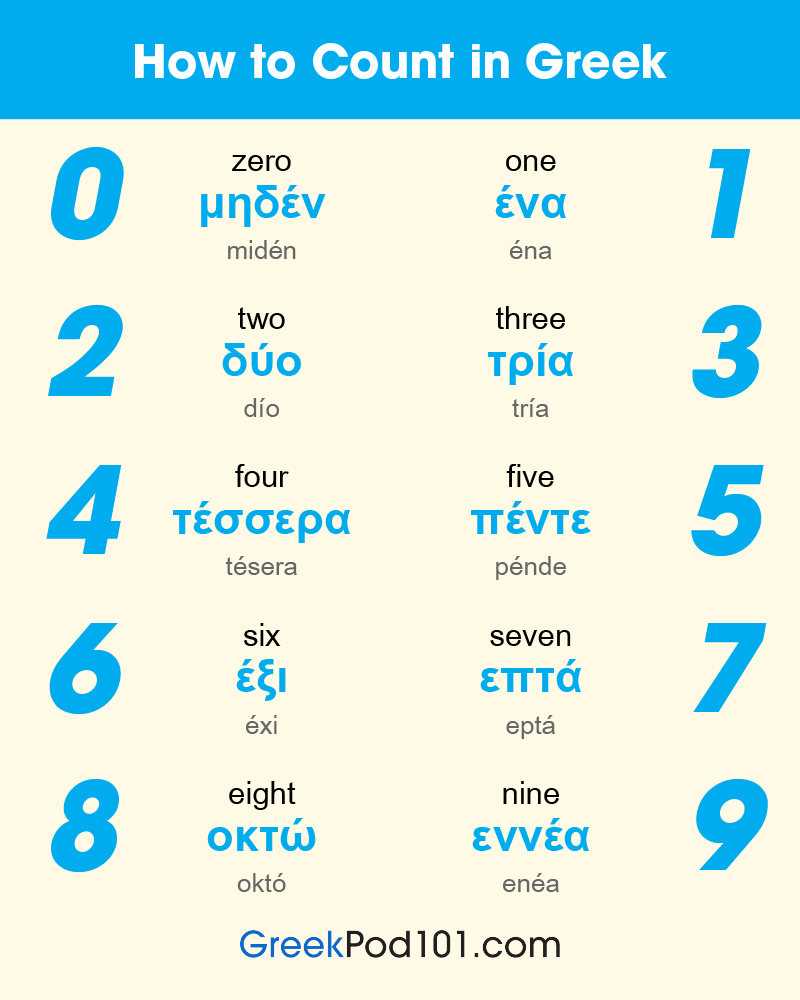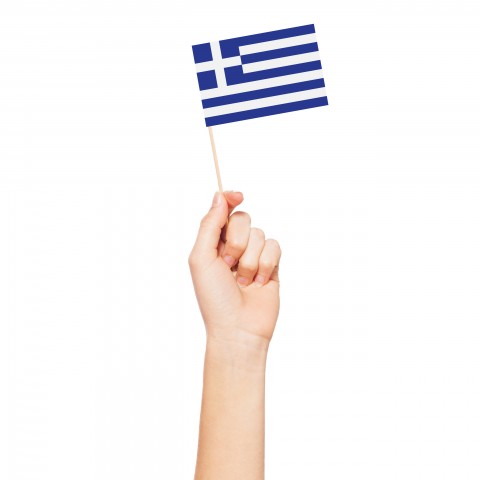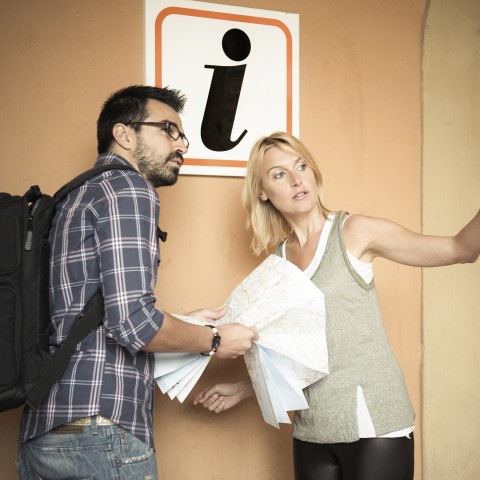
You’re learning to speak Greek, and it’s going well. Your confidence is growing! So much so that you feel ready to share your experiences on social media—in Greek.
At Learn Greek, we make this easy for you to get it right the first time. Post like a boss with these phrases and guidelines, and get to practice your Greek in the process.

1. Talking about Your Restaurant Visit in Greek
Eating out is fun, and often an experience you’d like to share. Take a pic, and start a conversation on social media in Greek. Your friend will be amazed by your language skills…and perhaps your taste in restaurants!
Sotíris eats at a restaurant with his friends, posts an image of of the food, and leaves this comment:

POST
Let’s break down Sotíris’s post.
Μπουκιά και συχώριο! (Bukiá ke sihório!)
“To die for!”
1- μπουκιά και συχώριο (bukiá ke sihório)
This is an idiomatic expression that literally means “mouthful and forgiveness.” You can use it in situations where you are eating food that is absolutely delicious. The true meaning behind this idiom is that the cook did such a good job that, with every bite, his or her sins should be forgiven.
COMMENTS
In response, Sotíris’s friends leave some comments.
1- Τι κρίμα, ήθελα να πάω κι εγώ! (Ti kríma, íthela na páo ki egó!)
His friend, Dímitra, makes a comment meaning – “What a shame, I wanted to go too!”
Dímitra is disappointed that she was not invited to go with.
2- Αυτά είναι! (Aftá íne!)
His college friend, Mihális, makes a comment meaning – “This is it!”
Mihális shares his friend’s enthusiasm over the delicious food.
3- Ωραίες γκουρμεδιές… (Orées gurmediés…)
Dimitra’s nephew, Míltos, makes a comment meaning – “Nice gourmet stuff…”
This slang expression shows you think the food is gourmet standard.
4- Θέλω κι εγώ! (Thélo ki egó!)
His high school friend, Hristína, makes a comment meaning – “I want it too!”
Use this sentence to show you want to do what the others are doing.
VOCABULARY
Find below the key vocabulary for this lesson:
μπουκιά (bukiá): “mouthful, bite”
συχώριο (sihório): “forgiveness (specially of sins, colloquial)”
τι (ti): “what (a)”
κρίμα (kríma): “shame, pity, bummer, sorrow”
πηγαίνω (piyéno): “to go, to leave, to match”
ωραίος (oréos): “nice, beautiful, handsome”
γκουρμεδιά (gurmediá): “gourmet food (slang)”
θέλω (thélo): “to want”
So, let’s practice a bit. If a friend posted something about having dinner with friends, which phrase would you use?
Now go visit a Greek restaurant, and wow the staff with your language skills!
2. Post about Going Out Shopping
Another super topic for social media is shopping—everybody does it, most everybody loves it, and your friends on social media are probably curious about your shopping sprees! Share these Greek phrases in posts when you go out shopping.
Dímitra shop with her sister at the mall, posts an image of it, and leaves this comment:

POST
Let’s break down Dímitra’s post.
Για ψώνια με την καλύτερη παρέα! (Ya psónia me tin kalíteri paréa!)
“Shopping with the best company!”
1- για ψώνια (ya psónia)
First is a phrase meaning “shopping.”
Although this phrase is short and has no verb, it is implied that you have gone shopping or that you are shopping right now. You can also replace the word ψώνια with some other noun. For example, if you used φαγητό, meaning “food”, you would be telling your friends on social media that you have gone for lunch or dinner somewhere.
2- με την καλύτερη παρέα (me tin kalíteri paréa)
Then comes the phrase – “with the best company.”
You can use this phrase as is in many situations to show that you are with people who you have a good time with. Keep in mind that this doesn’t necessarily imply friendship.
COMMENTS
In response, Dímitra’s friends leave some comments.
1- Είστε και οι δύο κούκλες! (Íste ke i dío kúkles!)
Her neighbor, Angelikí, makes a comment meaning – “You both look gorgeous!”
Use this sentence to compliment two women or girls on their looks.
2- Πήρες τελικά αυτό που ήθελες; (Píres teliká aftó pu ítheles?)
Her high school friend, Yeoryía, makes a comment meaning – “Did you eventually get what you wanted?”
Use this sentence to tease someone when you think they got carried away with shopping.
3- Σέλφι! (Sélfi!)
Her friend, Sotíris, makes a comment meaning – “Selfie!”
Use this expression when you want someone to post selfies, or to talk about selfies.
4- Σέλφι χωρίς ντακ φέις; Πάει, χάλασες εσύ! (Sélfi horís dak féis? Pái, hálases esí!)
Her college friend, Mihális, makes a comment meaning – “Selfie without a duck face? There must be something wrong with you!”
Use these sentences when you feel like being sarcastic in this context.
VOCABULARY
Find below the key vocabulary for this lesson:
ψώνια (psónia): “shopping”
καλύτερος (kalíteros): “better, best”
παρέα (paréa): “company, group of friends, party”
κούκλα (kúkla): “doll, beautiful woman (figuratively)”
τελικά (teliká): “finally, in the end, eventually”
σέλφι (sélfi): “selfie”
ντακ φέις (dak féis): “duck face”
χαλάω (haláo): “to go bad, to spoil, to ruin”
So, if a friend posted something about going shopping, which phrase would you use?
3. Talking about a Sport Day in Greek
Sports events, whether you’re the spectator or the sports person, offer fantastic opportunity for great social media posts. Learn some handy phrases and vocabulary to start a sport-on-the-beach conversation in Greek.
Sotíris plays with his friends at the beach, posts an image of it, and leaves this comment:

POST
Let’s break down Sotíris’s post.
Πετάει η ομάδα! (Petái i omáda!)
“The team rocks!”
1- πετάει (petái)
First is a verb meaning “rocks”, which is a metaphor.
Although this verb form literally means “flies” in the third person singular, what it actually means in this context is that the team is winning by a great difference.
2- η ομάδα (i omáda)
Then comes the noun – “the team.”
You can use this noun in many contexts, as it doesn’t have to involve sports. For example, you could post a picture of you and your colleagues or you and a group of people that you share a certain activity with and use “Η ομάδα.” as the caption.
COMMENTS
In response, Sotíris’s friends leave some comments.
1- Παιδιά, να μαζευτούμε να ξαναπάμε! (Pediá, na mazeftúme na xanapáme!)
His high school friend, Hristína, makes a comment meaning – “Guys, we should get (back) together and go there again!”
Use this sentence to show you are keen on seeing a group of people again.
2- Ποιος κέρδισε; (Pios kérdise?)
His Dimitra’s nephew, Míltos, makes a comment meaning – “Who won?”
Use this question when asking about the result of a game, competition, elections etc.
3- Ανέβασε και τις υπόλοιπες φωτογραφίες! (Anévase ke tis ipólipes fotografíes!)
His college friend, Mihális, makes a comment meaning – “Upload the rest of the pictures too!”
Use this sentence to ask people to upload pictures on social media.
4- Εγώ θα ανεβάσω τις δικές μου αύριο όταν θα έχω χρόνο. (Egó tha aneváso tis dikés mu ávrio ótan tha ého hróno.)
His neighbor, Angelikí, makes a comment meaning – “I’ll upload mine tomorrow when I have some time.”
Use this sentence to explain that you are busy.
VOCABULARY
Find below the key vocabulary for this lesson:
πετάω (petáo): “to fly, to throw”
ομάδα (omáda): “team, group, type (for blood)”
μαζεύομαι (mazévome): “to get together, to gather, to crouch, to shrink, to be collected”
ξαναπηγαίνω (xanapiyéno): “to go again”
κερδίζω (kerdízo): “to win, to earn, to defeat”
ανεβάζω (anevázo): “to upload, to raise, to elevate”
φωτογραφία (fotografía): “photo, photography”
χρόνος (hrónos): “time, year”
Which phrase would you use if a friend posted something about sports?
But sport is not the only thing you can play! Play some music, and share it on social media.
4. Share a Song on Social Media in Greek
Music is the language of the soul, they say. So, don’t hold back—share what touches your soul with your friends!
Dímitra shares a song she just heard at a party, posts a video of the artist, and leaves this comment:

POST
Let’s break down Dímitra’s post.
Ένα βίντεο για να φτιάξει η διάθεση. Καλημέρες! (Éna vídeo ya na ftiáxi i diáthesi. Kaliméres!)
“A video to get into the mood. Good morning! ”
1- ένα βίντεο για να φτιάξει η διάθεση (éna vídeo ya na ftiáxi i diáthesi)
First is a phrase meaning “a video to get into the mood.”
In Greek, when you want to go from a bad mood to a good mood, we literally say “to fix the mood.” For that, we use the verb φτιάχνω, “to make”, in the third person singular form of the subjunctive, which is να φτιάξει, meaning “to make/fix”. However, the use of this phrase is impersonal because no one really “makes” your mood. Your mood simply becomes better by no one in particular.
2- καλημέρες (kaliméres)
Then comes the expression – “good morning.”
Recently on Greek social media it is very common to see the word for “good morning” in the plural (καλημέρες) instead of the singular (καλημέρα), which is the usual way to say it. For Greeks, καλημέρα can be used as either an interjection or as a noun (η καλημέρα). As a noun, it has a plural form (οι καλημέρες). In that sense, posting the plural form καλημέρες on social media means that you are sending a “good morning” to everyone. So, basically you’re sending many “good mornings!” all at once.
COMMENTS
In response, Dímitra’s friends leave some comments.
1- Ο τύπος στο βιντεοκλίπ είναι φοβερός! (O típos sto videoklíp íne foverós!)
Her neighbor, Angelikí, makes a comment meaning – “The guy in the video clip is awesome!”
Use this sentence to give a compliment to someone.
2- Τι κάνει ο άνθρωπος;! (Ti káni o ánthropos?!)
Her high school friend, Yeoryía, makes a comment meaning – “The things this man can do!”
Use this expression when you want to comment on someone’s extraordinary skills.
3- Απίστευτο βιντεοκλίπ! (Apístefto videoklíp!)
Her college friend, Mihális, makes a comment meaning – “Amazing music video!”
Use this sentence to show you are impressed.
4- Καλημέρα! (Kaliméra!)
Her friend, Sotíris, makes a comment meaning – “Good morning!”
Use this expression to greet people in the morning hours and until noon.
VOCABULARY
Find below the key vocabulary for this lesson:
διάθεση (diáthesi): “mood, temper, disposition”
καλημέρα (kaliméra): “good morning”
τύπος (típos): “guy, dude, type”
φοβερός (foverós): “awesome, terrific, terrifying, terrible”
κάνω (káno): “to do, to make”
άνθρωπος (ánthropos): “human, man”
απίστευτος (apísteftos): “unbelievable, incredible, amazing”
βιντεοκλίπ (videoklíp): “music video”
Which song would you share? And what would you say to a friend who posted something about sharing music or videos?
Now you know how to start a conversation about a song or a video on social media!
5. Greek Social Media Comments about a Concert
Still on the theme of music—visiting live concerts and shows just have to be shared with your friends. Here are some handy phrases and vocab to wow your followers in Greek!
Sotíris goes to a concert, posts an image of the event, and leaves this comment:

POST
Let’s break down Sotíris’s post.
Συμβαίνει τώρα. (Simvéni tóra.)
“Happening now.”
1- συμβαίνει τώρα (simvéni tóra)
Use this phrase when posting pictures online that show your friends or followers what you are doing at that very moment. The verb συμβαίνει is in the third person, which translated means “it’s happening.”
COMMENTS
In response, Sotíris’s friends leave some comments.
1- Δώσε… (Dóse…)
His college friend, Mihális, makes a comment meaning – “Give it all! ”
Use this slang expression when listening to a song you like, especially a live song, to show that you want the artist to keep going.
2- Καλά να περάσεις! (Kalá na perásis!)
His neighbor, Angelikí, makes a comment meaning – “Have a good time!”
Use this expression to wish others a good time.
3- Μακάρι να ήμουν εκεί! (Makári na ímun ekí!)
His high school friend, Hristína, makes a comment meaning – “I wish I were there!”
Use this sentence to show you are a bit sad you couldn’t make it to a certain event.
4- Κωλόφαρδε! Εγώ δεν βρήκα εισιτήρια… (Kolófarde! Egó den vríka isitíria…)
Dimitra’s nephew, Míltos, makes a comment meaning – “You lucky guy! I didn’t find tickets…”
Use these sentences to show you are a bit jealous.
VOCABULARY
Find below the key vocabulary for this lesson:
συμβαίνω (simvéno): “to happen, to occur, to take place”
τώρα (tóra): “now”
δίνω (díno): “to give”
περνάω (pernáo): “to spend (time), to pass, to come”
μακάρι (makári): “I wish, if only (no equivalent in English)”
κωλόφαρδος (kolófardos): “very lucky (colloquial)”
βρίσκω (vrísko): “to find”
εισιτήριο (isitírio): “ticket”
If a friend posted something about a concert, which phrase would you use?
6. Talking about an Unfortunate Accident in Greek
Oh dear! You smashed your mobile phone by accident. Use these Greek phrases to start a thread on social media. Or maybe just to let your friends know why you are not contacting them!
Dímitra accidentally breaks her mobile phone, and leaves this comment:

POST
Let’s break down Dímitra’s post.
Φρίκη! Δεν το πιστεύω αυτό που έπαθα… (Fríki! Den to pistévo aftó pu épatha…)
“Terrible! I can’t believe what happened to me…”
1- φρίκη (fríki)
First is an expression meaning “terrible.”
This is a noun that typically means “horror.” However, it can be used as an interjection, like in this lesson, when something really bad happens. In this case, it means “horrible” or “terrible.”
2- δεν το πιστεύω αυτό που έπαθα (den to pistévo aftó pu épatha)
Then comes the phrase – “I can’t believe what happened to me.”
You can use δεν το πιστεύω, which means “I can’t believe it”, to express your surprise about something that just happened or something you suddenly found out. It can be used for both good and bad situations, just like its English equivalent.
COMMENTS
In response, Dímitra’s friends leave some comments.
1- Περαστικά… (Perastiká…)
Her friend, Sotíris, makes a comment meaning – “Get well soon…”
Use this expression literally when someone is sick, or when you want the other person to recover from misfortune.
2- Όταν τα παλιά τα κινητά πέφτανε, δεν παθαίνανε τίποτα. (Ótan ta paliá ta kinitá péftane, den pathénane típota.)
Her supervisor, Dionísis, makes a comment meaning – “When the old mobiles would fall, nothing would happen to them.”
Use this sentence if you are a bit old fashioned when it comes to technology.
3- Καλά, εσύ το διέλυσες! (Kalá, esí to diélises!)
Her high school friend, Yeoryía, makes a comment meaning – “Gosh, you smashed it!”
Use this sentence to be funny.
4- Αν θες, μπορώ να σου δανείσω την παλιά μου συσκευή. (An thes, boró na su daníso tin paliá mu siskeví.)
Her neighbor, Angelikí, makes a comment meaning – “If you want, I can lend you my old device.”
Use this sentence to show you want to help.
VOCABULARY
Find below the key vocabulary for this lesson:
φρίκη (fríki): “horror, horrible/terrible (as an interjection)”
πιστεύω (pistévo): “to believe, to think, to reckon”
που (pu): “that”
περαστικά (perastiká): “get well soon (no equivalent in English)”
παλιός (paliós): “old”
παθαίνω (pathéno): “to happen to, to suffer”
διαλύω (dialío): “to dissolve, to smash, to break apart”
δανείζω (danízo): “to lend”
If a friend posted something about having broken something by accident, which phrase would you use?
So, now you know how to describe an accident in Greek. Well done!
7. Chat about Your Boredom on Social Media in Greek
Sometimes, we’re just bored with how life goes. And to alleviate the boredom, we write about it on social media. Add some excitement to your posts by addressing your friends and followers in Greek!
Sotíris gets bored at home, and leaves this comment:

POST
Let’s break down Sotíris’s post.
Η απόλυτη βαρεμάρα σήμερα λέμε. (I apóliti varemára símera léme.)
“Talk about absolute boredom today.”
1- η απόλυτη βαρεμάρα σήμερα (i apóliti varemára símera)
First is a phrase meaning “absolute boredom today.”
This is one of those phrases that doesn’t need a verb to make sense. You can use this phrase as is when you are utterly bored and want attention, which usually works, as it will trigger comments.
2- λέμε (léme)
Then comes the verb expression – “talk about.”
This verb form literally means “we talk” or “we are talking.” However, here it is used in a non-literal way. You can say λέμε directly before or after a statement to emphasize what you just mentioned. This will make your speech sound slangy, so don’t use it in formal situations.
COMMENTS
In response, Sotíris’s friends leave some comments.
1- Θες να κάνουμε κάτι πιο μετά; (Thes na kánume káti pio metá?)
His friend, Dímitra, makes a comment meaning – “Do you want to do something later?”
Use this sentence to show you want to hang out with someone.
2- Άκου τη Δήμητρα! Όλο και κάποια καλή ιδέα θα έχει. (Áku ti Dímitra! Ólo ke kápia kalí idéa tha éhi.)
His neighbor, Angelikí, makes a comment meaning – “Listen to Demetra! She must have some good idea.”
She uses this sentence as a pun to get the two of them together.
3- Φίλε, ξεκόλλα! (Fíle, xekóla!)
His college friend, Mihális, makes a comment meaning – “Dude, snap out of it!”
Use this sentence when someone is feeling bad or sad without a serious reason.
4- Το ‘χει η μέρα… (To ‘hi i méra…)
Dimitra’s nephew, Míltos, makes a comment meaning – “It’s one of those days…”
Use this expression on days when everything seems to be going wrong.
VOCABULARY
Find below the key vocabulary for this lesson:
απόλυτος (apólitos): “absolute”
βαρεμάρα (varemára): “boredom”
σήμερα (símera): “today”
κάτι (káti): “something”
πιο μετά (pio metá): “later”
ακούω (akúo): “to hear, to listen”
κάποιος (kápios): “some, somebody, someone”
ξεκολλάω (xekoláo): “to come off, to become detached, to snap out of (figuratively)”
If a friend posted something about being bored, which phrase would you use?
Still bored? Share another feeling and see if you can start a conversation!
8. Exhausted? Share It on Social Media in Greek
Sitting in public transport after work, feeling like chatting online? Well, converse in Greek about how you feel, and let your friends join in!
Dímitra feels exhausted after a long day at work, posts an image of herself looking tired, and leaves this comment:

POST
Let’s break down Dímitra’s post.
Είμαι ΠΤΩΜΑ! (Íme PTOMA!)
“I’m DEAD!”
1- είμαι πτώμα (íme ptóma)
Obviously this phrase is used metaphorically to mean that you are exhausted. So use it when you are feeling tired and fatigued.
COMMENTS
In response, Dímitra’s friends leave some comments.
1- Καλή ξεκούραση. (Kalí xekúrasi.)
Her supervisor, Dionísis, makes a comment meaning – “Have a good rest.”
Use this sentence structure to wish someone something.
2- Ώχου το! Ξεκουράσου σήμερα και θα περάσω να σε δω αύριο. (Óhu to! Xekurásu símera ke tha peráso na se do ávrio.)
Her friend, Sotíris, makes a comment meaning – “Aw! Rest today and I’ll pass by to see you tomorrow.”
Use these sentences to show affection and that you care about their predicament.
3- Σωτήρη, Δήμητρα, τι τρέχει με εσάς τους δύο; (Sotíri, Dímitra, ti tréhi me esás tus dío?)
Her neighbor, Angelikí, makes a comment meaning – “Sotiri, Demetra, what’s the deal with the two of you?”
Use this sentence to show you are being suspicious that there might be more than friendship between two people. Or you could use this to tease them, if you know they’re just friends!
4- Όπα! Τι έγινε βρε παιδιά; (!) (Ópa! Ti éyine vre pediá? (!))
Her high school friend, Yeoryía, makes a comment using a famous line from a popular old Greek TV series meaning – “Whoa! What’s going on, you guys? (!)”
Use this line if you want to be funny.
VOCABULARY
Find below the key vocabulary for this lesson:
πτώμα (ptóma): “dead body, corpse, exhausted (figuratively)”
ξεκούραση (xekúrasi): “rest, repose”
ώχου (óhu): “aw (cute), ah (annoyance)”
ξεκουράζομαι (xekurázome): “to rest, to repose”
βλέπω (vlépo): “to see, to watch”
τρέχω (trého): “to run, to execute (computer)”
δύο (dío): “two”
όπα (ópa): “whoa (no equivalent in English)”
If a friend posted something about being exhausted, which phrase would you use?
Now you know how to say you’re exhausted in Greek! Well done.
9. Talking about an Injury in Greek
So life happens, and you manage to have sport injuries. Very Tweet-worthy! Here’s how to do it in Greek.
Sotíris get diagnosed with tendonitis, posts an image of his knee, and leaves this comment:

POST
Let’s break down Sotíris’s post.
Τενοντίτιδα… καταπληκτικά… (Tenondítida… katapliktiká…)
“Tendonitis… great…”
1- τενοντίτιδα (tenondítida)
First is a noun meaning “tendonitis.”
If you want to post about a sickness or injury you have, then all you need to do is post its name. This will make it clear to everyone that you have it.
2- καταπληκτικά (katapliktiká)
Then comes the adverb – “great.”
Although the meaning of this adverb has a positive connotation, you can use it in an ironic way to express the opposite. It’s similar to English where you say “just great” when something bad happens.
COMMENTS
In response, Sotíris’s friends leave some comments.
1- Μιλάς σοβαρά; (Milás sovará?)
His friend, Dímitra, makes a comment meaning – “Are you serious?”
Use this sentence to show you are surprised.
2- Να προσέχεις, μην το ζορίζεις το γόνατό σου. (Na proséhis, min to zorízis to gónató su.)
His supervisor, Dionísis, makes a comment meaning – “Take care of yourself. Don’t strain your knee.”
Use this sentence to show empathy.
3- Το είχα πάθει κι εγώ απ’ τον χορό. Περαστικά. (To íha páthi ki egó ap’ ton horó. Perastiká.)
His high school friend, Hristína, makes a comment meaning – “It happened to me too from dancing. Get well.”
Use these sentences to show the poster you know what they are going through.
4- Σε βλέπω αγκαλιά με τα παυσίπονα για λίγο καιρό. (Se vlépo angaliá me ta pafsípona ya lígo keró.)
His college friend, Mihális, makes a comment meaning – “I see you’ll be attached to painkillers for a while.”
Use this sentence if you want to talk with a humorous tone.
VOCABULARY
Find below the key vocabulary for this lesson:
τενοντίτιδα (tenondítida): “tendonitis”
καταπληκτικά (katapliktiká): “amazing(ly), awesome(ly), great”
σοβαρά (sovará): “seriously, severely, really”
προσέχω (prosého): “to take care, to watch over, to be careful, to pay attention”
ζορίζω (zorízo): “to strain, to pressure, to force”
γόνατο (gónato): “knee”
χορός (horós): “dance”
αγκαλιά (angaliá): “hug”
If a friend posted something about being injured, which phrase would you use?
We love to share our fortunes and misfortunes; somehow that makes us feel connected to others.
10. Starting a Conversation Feeling Disappointed in Greek
Sometimes things don’t go the way we planned. Share your disappointment about this with your friends!
Dímitra feels disappointed about today’s weather, posts an image of it, and leaves this comment:

POST
Let’s break down Dímitra’s post.
Γκαντεμιά! Μας τα χάλασε σήμερα ο καιρός. (Gademiá! Mas ta hálase símera o kerós.)
“Shoot! The weather messed up everything today.”
1- γκαντεμιά (gademiá)
First is a noun expression meaning “shoot.”
This noun literally translates as “misfortune.” It can be used as a noun (η γκαντεμιά) or as an interjection, like in this lesson. In this case, you understand that “shoot” is similar to “Shoot!” in English.
2- μας τα χάλασε σήμερα ο καιρός (mas ta hálase símera o kerós)
Then comes the phrase – “the weather messed up everything today.”
If we translate this phrase word for word, it would mean something like “the weather today ruined them for us.” “Them”, in this case, would be their plans. You can replace ο καιρός with another word or the name of a person who ruins your plans.
COMMENTS
In response, Dímitra’s friends leave some comments.
1- Εμένα πάλι μου αρέσει πολύ αυτός ο καιρός. (Eména páli mu arési polí aftós o kerós.)
Her neighbor, Angelikí, makes a comment meaning – “Well, I actually like this weather a lot.”
Use this sentence structure to express an opposite opinion.
2- Αγγελική, να το κοιτάξεις αυτό! (Angelikí, na to kitáxis aftó!)
Her college friend, Mihális, makes a comment meaning – “Angeliki, you should get that checked!”
Use this sentence to show sarcasm in a humorous way.
3- Κρύο καιρός για δύο! (Krío kerós ya dío!)
Her high school friend, Yeoryía, makes a comment meaning – “When it’s cold, it’s time for two!”
Use this sentence when you want to imply that it’s the ideal weather for romance.
4- Θα συμφωνήσω με τη Γεωργία… (Tha simfoníso me ti Yeoryía…)
Her friend, Sotíris, makes a comment meaning – “I agree with Georgia…”
Use this sentence when you agree with someone.
VOCABULARY
Find below the key vocabulary for this lesson:
γκαντεμιά (gademiá): “bad luck, misfortune, shoot (as an interjection)”
καιρός (kerós): “weather, time”
πάλι (páli): “again, also used for emphasis in speech”
αρέσω (aréso): “to like, to be liked”
πολύ (polí): “very, much, too”
κοιτάζω (kitázo): “to look, to stare, to glance”
κρύο (krío): “cold”
συμφωνώ (simfonó): “to agree”
How would you comment in Greek when a friend is disappointed?
Not all posts need to be about a negative feeling, though!
11. Talking about Your Relationship Status in Greek
Don’t just change your relationship status in Settings, talk about it!
Sotíris changes his status to “In a relationship”, posts an image of him and Dimitra, and leaves this comment:

POST
Let’s break down Sotíris’s post.
Κι επίσημα πλέον σε σχέση… (Ki epísima pléon se schési…)
“And officially in a relationship…”
1- κι επίσημα πλέον (ki epísima pléon)
First is a phrase meaning “and officially.”
You can use this phrase before announcing something important like when you get married, engaged or even become jobless.
2- σε σχέση (se schési)
Then comes the phrase – “in a relationship.”
When you want to change your relationship status on social media, the option you need to select, on a Greek interface, is σε σχέση.
COMMENTS
In response, Sotíris’s friends leave some comments.
1- Αχ δεν ξέρετε πόσο χαίρομαι για σας! (Ah den xérete póso hérome ya sas!)
His neighbor, Angelikí, makes a comment meaning – “Oh, you guys don’t know how happy I am for both of you!”
Use this sentence to show you are feeling warmhearted.
2- Πες μας κάτι που δεν ξέραμε! (Pes mas káti pu den xérame!)
His college friend, Mihális, makes a comment meaning – “Tell us something we don’t know!”
Use this sentence to show you are not surprised.
3- Να κι ένα καλό νέο σήμερα. Συγχαρητήρια, παιδιά! (Na ki éna kaló néo símera. Sinharitíria, pediá!)
His supervisor, Dionísis, makes a comment meaning – “There’s the good news of the day. Congratulations, you guys!”
Use these sentences to congratulate someone.
4- Η αλήθεια είναι επιτέλους γυμνή! (I alíthia íne epitélus yimní!)
His girlfriend’s nephew, Míltos, makes a comment meaning – “The truth is finally out!”
Use this standard comment to be a bit sarcastic and funny.
VOCABULARY
Find below the key vocabulary for this lesson:
επίσημα (epísima): “officially”
πλέον (pléon): “already, any more, any longer”
σχέση (schési): “relationship”
ξέρω (xéro): “to know, to be aware of”
χαίρομαι (hérome): “to be glad, to enjoy, to be delighted”
νέο (néo): “news (singular)”
συγχαρητήρια (sinharitíria): “congratulations”
αλήθεια (alíthia): “truth, reality”
What would you say in Greek when a friend changes their relationship status?
Being in a good relationship with someone special is good news – don’t be shy to spread it!
12. Post about Getting Married in Greek
Wow, so things got serious, and you’re getting married. Congratulations! Or, your friend is getting married, so talk about this in Greek.
Dímitra is getting married today, so she leaves this comment:

POST
Let’s break down Dímitra’s post.
Σήμερα είναι η πιο ευτυχισμένη μέρα της ζωής μου! (Símera íne i pio eftihizméni méra tis zoís mu!)
“Today is the happiest day of my life!”
1- σήμερα είναι (símera íne)
First is a phrase meaning “today is.”
This is a very common phrase to use when you want to talk about your day. Usually what follows includes the phrase η μέρα, meaning “the day.”
2- η πιο ευτυχισμένη μέρα της ζωής μου (i pio eftihizméni méra tis zoís mu)
Then comes the phrase – “the happiest day of my life.”
In Greek, the superlative degree is not always monolectic like the English word “happiest”, for example. In order to form the periphrastic superlative degree, you have to use a definite article, then the adverb πιο, plus the adjective or participle in the positive degree; for example, η πιο ευτυχισμένη, which means “the happiest.”
COMMENTS
In response, Dímitra’s friends leave some comments.
1- Αυτός ο γάμος θα αφήσει εποχή! (Aftós o gámos tha afísi epohí!)
Her high school friend, Yeoryía, makes a comment meaning – “This wedding will make history!”
Use this sentence to indicate that an event will be unforgettable.
2- Να ζήσετε, να ευτυχίσετε! (Na zísete, na eftihísete!)
Her neighbor, Angelikí, makes a comment meaning – “Live long, be happy!”
Use this common wish whenever someone gets married.
3- Σας εύχομαι από καρδιάς «βίον ανθόσπαρτον». (Sas éfhome apó kardiás “víon anthósparton”.)
Her supervisor, Dionísis, makes a comment meaning – “I wish wholeheartedly that your life will be a road paved with roses.”
Use this expression when you want to sound a bit formal.
4- Άντε και καλούς απογόνους! (Áde ke kalús apogónus!)
Her college friend, Mihális, makes a comment meaning – “Well, have good offspring!”
Use this common expression to wish newly-weds a happy family with kids.
VOCABULARY
Find below the key vocabulary for this lesson:
ευτυχισμένος (eftihizménos): “happy”
ζωή (zoí): “life”
γάμος (gámos): “marriage, wedding”
εποχή (epohí): “era, season, time, age”
ευτυχώ (eftihó): “to be happy”
εύχομαι (éfhome): “to wish”
καρδιά (kardiá): “heart”
απόγονος (apógonos): “descendant”
How would you respond in Greek to a friend’s post about getting married?
For the next topic, fast forward about a year into the future after the marriage…
13. Announcing Big News in Greek
Wow, huge stuff is happening in your life! Announce it in Greek.
Sotíris finds out he and his wife are going to have a baby, posts an image of it, and leaves this comment:

POST
Let’s break down Sotíris’s post.
Είμαστε τρεις! (Ímaste tris!)
“We are three!”
1- είμαστε τρεις (ímaste tris)
Just like in English, this phrase has become a popular way of announcing a pregnancy on social media. However, Greek women rarely post pictures of their naked belly or ultrasound to show the world that they’re pregnant. Most Greek women like to protect their privacy.
COMMENTS
In response, Sotíris’s friends leave some comments.
1- Συγχαρητήρια! Κορίτσι ή αγόρι; (Sinharitíria! Korítsi í agóri?)
His wife’s nephew, Míltos, makes a comment meaning – “Congratulations! Boy or girl?”
Use these sentences when you want to ask after a baby’s gender.
2- Θέλω να είμαι η νονά! (Thélo na íme i noná!)
His wife’s high school friend, Yeoryía, makes a comment meaning – “I want to be the godmother!”
Use this sentence to show you want to be involved and committed to the child’s spiritual growth.
3- Θα είναι το πιο όμορφο μωρό του κόσμου! (Tha íne to pio ómorfo moró tu kósmu!)
His neighbor, Angelikí, makes a comment meaning – “It will be the most beautiful baby in the world!”
Use this sentence to compliment parents with an unborn baby’s looks.
4- Θα τρελαθώ! Συγχαρητήρια, παιδιά! (Tha trelathó! Sinharitíria, pediá!)
His high school friend, Hristína, makes a comment meaning – “This is so exciting! (lit. “I’m getting crazy!” ) Congratulations, you guys!”
Use these sentences to show you are extremely happy.
VOCABULARY
Find below the key vocabulary for this lesson:
τρεις (tris): “three”
κορίτσι (korítsi): “girl”
αγόρι (agóri): “boy”
νονά (noná): “godmother”
όμορφος (ómorfos): “beautiful, pretty, handsome”
μωρό (moró): “baby, babe”
κόσμος (kózmos): “world, people, crowd, cosmos”
τρελαίνομαι (trelénome): “to go crazy, to love, to be amazed, to be shocked”
Which phrase would you choose when a friend announces their pregnancy on social media?
So, talking about a pregnancy will get you a lot of traction on social media. But wait till you see the responses to babies!
14. Posting Greek Comments about Your Baby
Your bundle of joy is here, and you cannot keep quiet about it! Share your thoughts in Greek.
Dímitra plays with her baby, posts an image of her, and leaves this comment:

POST
Let’s break down Dímitra’s post.
Ο θησαυρός μου… (O thisavrós mu…)
“My treasure…”
1- ο θησαυρός μου (o thisavrós mu)
Greeks often use the word θησαυρός, meaning “treasure”, as a way to address someone dear and precious to them. Children, grandchildren and partners are often someone’s “treasure.” As far as social media is concerned, most parents don’t post pictures of their children anywhere on the internet. There’s a lot of awareness about the dangers of such habits.
COMMENTS
In response, Dímitra’s friends leave some comments.
1- Να σας ζήσει! (Na sas zísi!)
Her supervisor, Dionísis, makes a comment meaning – “May she live long!”
Use this standard expression to wish a newborn well-being.
2- Είναι τσαχπίνα σαν τη μάνα της! (Íne tsahpína san ti mána tis!)
Her high school friend, Yeoryía, makes a comment meaning – “She’s a flirt just like her mother!”
Use this sentence if you want to keep a humorous tone.
3- Κουκλάκι ζωγραφιστό! Φτου φτου φτου! (Kukláki zografistó! Ftu ftu ftu!)
Her husband’s high school friend, Hristína, makes a comment meaning – “She’s as cute as a doll! Ptooey ptooey ptooey!”
Use these sentences to compliment the baby and also protect it against the evil eye, a common superstition in Greece when giving a compliment.
4- Είναι μια γλύκα! (Íne mia glíka!)
Her college friend, Mihális, makes a comment meaning – “She’s so cute!”
Use this sentence to show you are feeling heartwarmed.
VOCABULARY
Find below the key vocabulary for this lesson:
θησαυρός (thisavrós): “treasure”
ζω (zo): “to live”
τσαχπίνα (tsahpína): “coquette, flirt”
μάνα (mána): “mother”
κουκλάκι (kukláki): “little doll, dolly, small stuffed animal, beautiful and cute (figuratively)”
ζωγραφιστός (zografistós): “painted, very beautiful (figuratively)”
φτου (ftu): “ptooey (onomatopoeic word from the sound of spitting)”
γλύκα (glíka): “sweetness, cuteness”
If your friend is the mother or father, which phrase would you use on social media?
Congratulations, you know the basics of chatting about a baby in Greek! But we’re not done with families yet…
15. Greek Comments about a Family Reunion
Family reunions – some you love, some you hate. Share about it on your feed.
Sotíris goes to a family gathering, posts an image of it, and leaves this comment:

POST
Let’s break down Sotíris’s post.
Επιτέλους όλη η οικογένεια μαζί! (Epitélus óli i ikoyénia mazí!)
“Finally, the whole family together!”
1- επιτέλους (epitélus)
First is an adverb meaning “finally.”
You can use this adverb to talk about a long-awaited event. Sometimes you can use it as is on social media, but you would have to post a very self-explanatory picture. For example, a picture of you holding your university degree.
2- όλη η οικογένεια μαζί (óli i ikoyénia mazí)
Then comes the phrase – “the whole family together.”
Occasions where all family members get together is becoming rarer in Greece. Although relatives may live close to each other, modern lifestyles keep people busy. However, during important holidays such as Easter, Christmas, and New Year, families get together no matter what.
COMMENTS
In response, Sotíris’s friends leave some comments.
1- Άντε και του χρόνου! (Áde ke tu hrónu!)
His wife’s nephew, Míltos, makes a comment meaning – “Next year again!”
Use this standard expression in occasions where you want them to repeat next year.
2- Όντως, πρέπει να το κάνουμε αυτό πιο συχνά. (Óndos, prépi na to kánume aftó pio sihná.)
His wife, Dímitra, makes a comment meaning – “Indeed, we need to do this more often.”
Use this sentence for occasions that don’t happen as often as you’d like.
3- Ωραία οικογένεια! (Oréa ikoyénia!)
His college friend, Mihális, makes a comment meaning – “Nice family!”
Use this sentence to show you are feeling heartwarmed.
4- Η οικογένεια είναι το σημαντικότερο πράγμα. (I ikoyénia íne to simandikótero prágma.)
His wife’s high school friend, Yeoryía, makes a comment meaning – “Family is the most important thing.”
Use this sentence to show you appreciate your family too, and it is also an opinion.
VOCABULARY
Find below the key vocabulary for this lesson:
επιτέλους (epitélus): “at last, finally”
όλος (ólos): “whole, all, entire”
οικογένεια (ikoyénia): “family”
μαζί (mazí): “together, with”
όντως (óndos): “indeed”
συχνά (sihná): “often”
σημαντικότερος (simandikóteros): “more/most important”
πράγμα (ikoyénia): “thing, stuff”
Which phrase is your favorite to comment on a friend’s photo about a family reunion?
16. Post about Your Travel Plans in Greek
So, the family are going on holiday. Do you know how to post and leave comments in Greek about being at the airport, waiting for a flight?
Dímitra waits at the airport for her flight, posts an image of it, and leaves this comment:

POST
Let’s break down Dímitra’s post.
Παρ’ όλη την καθυστέρηση, Βιέννη, σου ερχόμαστε! (Par’ óli tin kathistérisi, Viéni, su erhómaste!)
“Despite the delay, Vienna, here we come!”
1- παρ’ όλη την καθυστέρηση (par’ óli tin kathistérisi)
First is a phrase meaning “despite the delay.”
In this phrase, we have the preposition παρά used in its contracted form (παρ’ with an apostrophe) because the word that follows begins with a vowel (όλη). This grammatical phenomenon is called έκθλιψη in Greek, and ecthlipsis in English. However, it only happens to some words, usually prepositions, so not all words that end with a vowel.
2- Βιέννη, σου ερχόμαστε (Viéni, su erhómaste)
Then comes the phrase – “Vienna, here we come.”
Just like in English, this type of expression is very common in Greek too. You can replace the word Βιέννη for any other word that denotes location, like city or country names.
COMMENTS
In response, Dímitra’s friends leave some comments.
1- Μην ξεχάσεις να μου φέρεις τα σουβενίρ που σου είπα! (Min xehásis na mu féris ta suvenír pu su ípa!)
Her neighbor, Angelikí, makes a comment meaning – “Don’t forget to bring me the souvenirs I told you (about)!”
Use this sentence structure whenever you need to remind someone of something.
2- Η αγαπημένη μου πόλη! Καλά να περάσετε! (I agapiméni mu póli! Kalá na perásete!)
Her high school friend, Yeoryía, makes a comment meaning – “My favorite city! Have a good time!”
Use the last sentence when people you know go on a trip.
3- Να προσέχετε τη μικρή! (Na proséhete ti mikrí!)
Her husband’s high school friend, Hristína, makes a comment meaning – “Take care of the little one!”
Use this sentence to show affection.
4- Ακόμα εδώ είστε; Άντε, καλό ταξίδι! (Akóma edó íste? Áde, kaló taxídi!)
Her college friend, Mihális, makes a comment meaning – “Are you guys still here? Have a good trip (already)!”
Use the last sentence when people you know go on a trip and want to wish them well.
VOCABULARY
Find below the key vocabulary for this lesson:
παρά (pará): “despite”
καθυστέρηση (kathistérisi): “delay, retardation”
έρχομαι (érhome): “to come”
ξεχνάω (xehnáo): “to forget”
φέρνω (férno): “to bring”
σουβενίρ (suvenír): “souvenir”
πόλη (póli): “city, town”
ακόμα (akóma): “still, yet, even”
Choose and memorize your best airport phrase in Greek!
Hopefully the rest of the trip is even better!
17. Posting about an Interesting Find in Greek
So maybe you’re strolling around at a local market, and find something interesting. Here are some handy Greek phrases!
Sotíris finds an unusual item at a local market in Vienna, posts an image of it, and leaves this comment:

POST
Let’s break down Sotíris’s post.
Αυτό τώρα τι μπορεί να είναι; Ακούω προτάσεις… (Aftó tóra ti borí na íne? Akúo protásis…)
“Now, what could this be? Any suggestions…”
1- αυτό τώρα τι μπορεί να είναι (aftó tóra ti borí na íne)
First is a phrase meaning “now, what could this be.”
In this expression and context, the word τώρα, meaning “now”, is used mainly to emphasize the curiosity of the speaker rather than signifying the present time. Τώρα can be replaced with the word πάλι, meaning “again”, without changing the meaning. Altogether you would have Αυτό πάλι τι μπορεί να είναι, and it would still mean the same thing: “Now, what could this be?”
2- ακούω προτάσεις (akúo protásis)
Then comes the phrase – “any suggestions.”
When people need suggestions in English they usually say “Any suggestions?” But in Greek you have to use the verb ακούω, meaning “to listen”, and literally say “I’m listening (to) suggestions”, ακούω προτάσεις.
COMMENTS
In response, Sotíris’s friends leave some comments.
1- Σταμάτα να ασχολείσαι με σαβούρες, λέω εγώ! (Stamáta na ascholíse me savúres, léo egó!)
His wife’s nephew, Míltos, makes a comment meaning – “I say stop messing around with junk!”
Use this sentence if you feel a bit cynical and negative.
2- Σίγουρα όχι το σουβενίρ μου! (Sígura óhi to suvenír mu!)
His college friend, Mihális, makes a comment meaning – “Definitely not my souvenir!”
Use this sentence if you want to be funny.
3- Μοιάζει με αποτυχημένο έργο τέχνης… (Miázi me apotihiméno érgo téhnis…)
His high school friend, Hristína, makes a comment meaning – “It looks like a piece of art gone wrong…”
Use this sentence to show you are… imaginative!
4- Από πού είναι αυτό; Από το μέλλον; (Apó pú íne aftó? Apó to mélon?)
His neighbor, Angelikí, makes a comment meaning – “Where is this from? From the future?”
Use this sentence if you want to be humorous.
VOCABULARY
Find below the key vocabulary for this lesson:
πρόταση (prótasi): “suggestion, proposition, proposal, sentence”
σταματάω (stamatáo): “to stop”
ασχολούμαι (ascholúme): “to be occupied with”
σαβούρα (savúra): “junk, trash, schlock, junk food (figuratively), very ugly woman (as an insult)”
σίγουρα (sígura): “certainly, for sure, sure, definitely, safely”
μοιάζω (miázo): “to look like, to resemble, to seem, to look alike”
αποτυχημένος (apotihiménos): “failed, unsuccessful”
μέλλον (mélon): “future”
Which phrase would you use to comment on a friend’s interesting find?
Perhaps you will even learn the identity of your find, or learn something new and interesting while you’re on holiday.
18. Post about a Sightseeing Trip in Greek
Let your friends know what you’re up to in Greek, especially when visiting a remarkable place! Don’t forget the photo!
Dímitra visits a famous landmark in Vienna, posts an image of it, and leaves this comment:

POST
Let’s break down Dímitra’s post.
Η πόλη αυτή απλά δεν υπάρχει! (I póli aftí aplá den ipárhi!)
“This city is just incredible!”
1- η πόλη αυτή (i póli aftí)
First is a phrase meaning “this city.”
In Greek, word order is flexible when it comes to demonstrative pronouns and the nouns they define. Here, for example, you could say η πόλη αυτή or αυτή η πόλη to mean “this city.”
2- απλά δεν υπάρχει (aplá den ipárhi)
Then comes the expression – “is just incredible.”
This is a slang expression that people recently started using in everyday life and on social media. What this literally means is “it just doesn’t exist.” You can use this to emphasize the fact that something is incredibly nice, good or beautiful. You can also omit the word απλά, meaning “just”, and simply say δεν υπάρχει, “it doesn’t exist”, i.e., “it’s incredible” or “it’s awesome.”
COMMENTS
In response, Dímitra’s friends leave some comments.
1- Όπως εδώ ένα πράμα… (Ópos edó éna práma…)
Her supervisor, Dionísis, makes a comment meaning – “Just like here…”
Use this sentence to be sarcastic.
2- Παραμυθένια! (Paramithénia!)
Her neighbor, Angelikí, makes a comment meaning – “Fairytale-like!”
Use this sentence to describe a place as enchanting.
3- Μήπως να μετακομίσω εκεί; (Mípos na metakomíso ekí?)
Her college friend, Mihális, makes a comment meaning – “Maybe I should move there?”
Use this sentence if you want to be humorous.
4- Ζηλεύω…! (Zilévo…!)
Her high school friend, Yeoryía, makes a comment meaning – “I’m jealous…!”
Use this sentence to show you are jealous in a good way.
VOCABULARY
Find below the key vocabulary for this lesson:
απλά (aplá): “simply, just”
υπάρχω (ipárho): “to exist, to be”
όπως (ópos): “like, just like, such as”
εδώ (edó): “here”
g
πράμα (práma): “thing, stuff (colloquially)”
παραμυθένιος (paramithénios): “fairytale-like”
μήπως (mípos): “maybe, whether, lest, for fear that”
μετακομίζω (metakomízo): “to move (in/out), to relocate”
Which phrase would you prefer when a friend posts about a famous landmark?
Share your special places with the world. Or simply post about your relaxing experiences.
19. Post about Relaxing Somewhere in Greek
So you’re doing nothing yet you enjoy that too? Tell your social media friends about it in Greek!
Sotíris relaxes at a beautiful place, posts an image of it, and leaves this comment:

POST
Let’s break down Sotíris’s post.
Ώρα για έναν χαλαρωτικό περίπατο στον ανακτορικό κήπο. (Óra ya énan halarotikó perípato ston anaktorikó kípo.)
“Time for a relaxing stroll in the palace garden.”
1- ώρα για (óra ya)
First is a phrase meaning “time for.”
What usually follows this phrase is a noun in the accusative. For example, with the noun περίπατος, meaning “stroll,” you can say ώρα για περίπατο, which means “time for a stroll.” Of course, there might also be adjectives or other words that define the noun, just like in our lesson: ώρα για έναν χαλαρωτικό περίπατο, “time for a relaxing stroll.”
2- έναν χαλαρωτικό περίπατο στον ανακτορικό κήπο (énan halarotikó perípato ston anaktorikó kípo)
Then comes the phrase – “a relaxing stroll in the palace garden.”
All the words in this phrase are in the accusative case because we are using the prepositions για (“for” ) and σε (“in” ). Keep in mind that using most prepositions in Greek (ex. με, σε, για, ως, προς, από, παρά, κατά etc.) will require an accusative after them.
COMMENTS
In response, Sotíris’s friends leave some comments.
1- Ουάου! (Uáu!)
His high school friend, Hristína, makes a comment meaning – “Wow!”
Use this interjection to show your amazement.
2- Πρέπει να περνάτε καταπληκτικά! (Prépi na pernáte katapliktiká!)
His neighbor, Angelikí, makes a comment meaning – “You guys must be having a great time!”
Use this sentence to show you are feeling positive.
3- Πολιτισμός, ρε φίλε… (Politizmós, re fíle…)
His college friend, Mihális, makes a comment meaning – “Dude, there’s so much culture in that country… (lit. “Dude, culture…” )”
Use this colloquial sentence to show you feel impressed.
4- Εσείς μάλλον δεν θα θέλετε να φύγετε από κει! (Esís málon den tha thélete na fíyete apó ki!)
His wife’s high school friend, Yeoryía, makes a comment meaning – “You guys probably don’t want to leave that place!”
Use this sentence to show you are feeling positive.
VOCABULARY
Find below the key vocabulary for this lesson:
ώρα (óra): “time, hour”
χαλαρωτικός (halarotikós): “relaxing”
περίπατος (perípatos): “walk, stroll”
ανακτορικός (anaktorikós): “palatial, pertaining to or resembling a palace”
κήπος (kípos): “garden”
πολιτισμός (politizmós): “culture, civilization”
μάλλον (málon): “probably, maybe, perhaps, rather”
φεύγω (févgo): “to leave, to go away, to come off”
Which phrase would you use to comment on a friend’s feed?
The break was great, but now it’s time to return home.
20. What to Say in Greek When You’re Home Again
And you’re back! What will you share with friends and followers?
Dímitra returns home after a vacation, posts an image of her place, and leaves this comment:

POST
Let’s break down Dímitra’s post.
Σπίτι μου, σπιτάκι μου. (Spíti mu, spitáki mu.)
“Home sweet home.”
1- σπίτι μου (spíti mu)
First is a phrase meaning “home.”
In Greek, the word σπίτι can mean either “house” or “home.” That means you can use this word even if you live in an apartment, which is where most Greeks live.
2- σπιτάκι μου (spitáki mu)
Then comes the phrase – “sweet home.”
Σπιτάκι is a diminutive of the noun σπίτι, meaning “house” or “home.” Greeks use diminutives not only to refer to things that are smaller than normal, but to refer to something with affection, such as someone’s sweet home. Note that while the English expression “home sweet home” does not contain any possessive pronouns, in Greek, we need to use μου twice.
COMMENTS
In response, Dímitra’s friends leave some comments.
1- Ελπίζω να μου έφερες τα σουβενίρ που σου ζήτησα! (Elpízo na mu éferes ta suvenír pu su zítisa!)
Her neighbor, Angelikí, makes a comment meaning – “I hope you brought me the souvenirs I asked for!”
Use this sentence to sound assertive.
2- Καλώς ήρθατε στη ζούγκλα! (Kalós írthate sti zúngla!)
Her high school friend, Yeoryía, makes a comment meaning – “Welcome to the jungle!”
Use this sentence to be sarcastic.
3- Περάσατε καλά; (Perásate kalá?)
Her supervisor, Dionísis, makes a comment meaning – “Did you have a good time?”
Use this question when someone you know comes back from a trip.
4- Και τώρα τα κεφάλια μέσα! (Ke tóra ta kefália mésa!)
Her college friend, Mihális, makes a comment meaning – “And now the party’s over! (lit. “Now heads inside!” )”
Use this sentence to show you are being realistic.
VOCABULARY
Find below the key vocabulary for this lesson:
σπίτι (spíti): “house, home”
σπιτάκι (spitáki): “little or sweet house or home (affectionate)”
ελπίζω (elpízo): “to hope”
ζητάω (zitáo): “to ask for”
καλώς ήρθες/-ατε (kalós írthes/-ate): “welcome”
ζούγκλα (zúngla): “jungle”
κεφάλι (kefáli): “head”
μέσα (mésa): “in, within, inside”
How would you welcome a friend back from a trip?
What do you post on social media during a public celebratory event, such as an Easter fireworks show?
21. It’s Time to Celebrate in Greek
It’s a festive day and you wish to post something about it on social media. What would you say?
Sotíris watches the Easter fireworks show, posts an image of it, and leaves this comment:

POST
Let’s break down Sotíris’s post.
Χριστός Ανέστη! (Hristós Anésti!)
“Christ is Risen!”
1- Χριστός Ανέστη (Hristós Anésti)
On the night before Easter Sunday, Greeks attend church, and at midnight, when the priest announces that Christ is resurrected, everyone starts singing a religious chant that begins with the phrase Χριστός Ανέστη, which means “Christ is Risen.” This religious phrase is also used to greet people after the night of the Resurrection. The proper response to this greeting is Αληθώς Ανέστη, which means “Truly, He is Risen.”
COMMENTS
In response, Sotíris’s friends leave some comments.
1- Η πρώτη μας Ανάσταση με τη μικρή! (I próti mas Anástasi me ti mikrí!)
His wife, Dímitra, makes a comment meaning – “Our first Resurrection with the little one!”
Use this sentence to show you are feeling emotional.
2- Αληθώς Ανέστη! (Alithós Anésti!)
His neighbor, Angelikí, makes a comment meaning – “Truly He is Risen!”
Always use this sentence as a response to Χριστός Ανέστη (Hristós Anésti) meaning “Christ is Risen.”
3- Η μικρή πρέπει να έχει φρικάρει με όλη τη φασαρία… (I mikrí prépi na éhi frikári me óli ti fasaría…)
His college friend, Mihális, makes a comment meaning – “The little one must be freaking out with all the noise…”
Use this sentence to show you are feeling concerned.
4- Χρόνια πολλά και ευτυχισμένος ο καινούριος Πάσχας! (Hrónia polá ke eftihizménos o kenúrios Páschas!)
His wife’s nephew, Míltos, makes a comment meaning – “Merry years and a happy new Easter! (a common humorous expression)”
Use this sentence if you want to be funny.
VOCABULARY
Find below the key vocabulary for this lesson:
Χριστός (Hristós): “Christ”
πρώτος (prótos): “first”
ανάσταση (anástasi): “resurrection”
μικρή (mikrí): “little one (feminine), kiddo”
πρέπει (prépi): “must, have to”
φρικάρω (frikáro): “to freak out”
φασαρία (fasaría): “noise, fuss, trouble, commotion”
πολύς (polís): “many, plenty, a lot of”
If a friend posted something about Easter, which phrase would you use?
Easter and other festive days are not the only special ones to remember!
22. Posting about a Birthday on Social Media in Greek
Your friend or you are celebrating your birthday in an unexpected way. Be sure to share this on social media!
Dímitra is at her birthday party, posts an image of it, and leaves this comment:

POST
Let’s break down Dímitra’s post.
Πάρτι έκπληξη! (Párti ékplixi!)
“Surprise party!”
1- πάρτι έκπληξη (párti ékplixi)
This expression works just like its English equivalent (“surprise party.” ) However, in a real situation, guests in Greece would probably surprise the birthday person by saying “Χρόνια Πολλά!”, meaning “Happy birthday!”, rather than saying “Surprise!”, or “Έκπληξη!”
COMMENTS
In response, Dímitra’s friends leave some comments.
1- Χα! Δεν το περίμενες ε; (Ha! Den to perímenes e?)
Her high school friend, Yeoryía, makes a comment meaning – “Ha! You weren’t expecting that, uh?”
Use these sentences to show you knew about the surprise.
2- Χρόνια σου πολλά μωρό μου! (Hrónia su polá moró mu!)
Her husband, Sotíris, makes a comment meaning – “Happy birthday my baby!”
Use this sentence to wish happy birthday to your love partner.
3- Χιλιόχρονη! Πάντα υγιής και ευτυχισμένη! (Hilióhroni! Pánda iyiís ke eftihizméni!)
Her husband’s high school friend, Hristína, makes a comment meaning – “Live a thousand years! Be always healthy and happy!”
Use these alternative sentences to wish someone a happy birthday.
4- Να τα εκατοστίσεις! (Na ta ekatostísis!)
Her nephew, Míltos, makes a comment meaning – “May you become one hundred years old!”
Use this standard expression with people that are close to you to wish them happy birthday.
VOCABULARY
Find below the key vocabulary for this lesson:
πάρτι (párti): “party”
έκπληξη (ékplixi): “surprise”
περιμένω (periméno): “to wait, to expect”
ε (e): “uh, hey, right”
χιλιόχρονος (hilióhronos): “one who is one thousand years old”
πάντα (pánda): “always, constantly, ever”
υγιής (iyiís): “healthy”
εκατοστίζω (ekatostízo): “to reach one hundred years of age”
If a friend posted something about birthday greetings, which phrase would you use?
23. Talking about New Year on Social Media in Greek
Impress your friends with your Greek New Year’s wishes this year. Learn the phrases easily!
Sotíris celebrates the New Year, posts an image of it, and leaves this comment:

POST
Let’s break down Sotíris’s post.
Καλή χρονιά σε όλους! (Kalí hroniá se ólus!)
“Happy New Year, everyone!”
1- καλή χρονιά (kalí hroniá)
First is a standard expression meaning “Happy New Year.”
In Greek, when we want to wish someone a “Happy New Year!”, we literally say “Good year!”, or Καλή χρονιά! Keep in mind that unlike in English, the word for “year” in Greek should be lowercase.
2- σε όλους (se ólus)
Then comes the phrase – “everyone.”
This is a very common thing to say after a greeting, especially on social media, because we are speaking to many people at the same time.
COMMENTS
In response, Sotíris’s friends leave some comments.
1- Τις ευχές μου για ένα πραγματικά ευτυχισμένο νέο έτος. (Tis efhés mu ya éna pragmatiká eftihizméno néo étos.)
His neighbor, Angelikí, makes a comment meaning – “Wishes for a truly happy new year.”
Use this sentence to show your wishes come from the heart.
2- Υγεία, αγάπη κι ευτυχία για εσένα και την οικογένειά σου. (Iyía, agápi ki eftihía ya eséna ke tin ikoyéniá su.)
His supervisor, Dionísis, makes a comment meaning – “Health, love and happiness for you and your family.”
This is a typical wish that is commonly used.
3- …και από Δευτέρα δίαιτα! (…ke apó Deftéra díeta!)
His wife’s nephew, Míltos, makes a comment meaning – “…and diet starts on Monday!”
Use this sentence to sound funny and tease.
4- Άντε και του χρόνου παντρεμένες οι ελεύθερες! (Áde ke tu hrónu pandreménes i eléftheres!)
His high school friend, Hristína, makes a comment meaning – “And may next year all the single ladies be married!”
Use this sentence to sound hopeful.
VOCABULARY
Find below the key vocabulary for this lesson:
χρονιά (hroniá): “year”
όλος (ólos): “everyone, everybody”
ευχή (efhí): “wish, blessing”
πραγματικά (pragmatiká): “really, truly, indeed”
έτος (étos): “year”
δίαιτα (díeta): “diet”
παντρεμένος (pandreménos): “married”
ελεύθερος (eléftheros): “free, single, clear”
Which is your favorite phrase to post on social media during New Year?
But before New Year’s Day comes another important day…
24. What to Post on Christmas Day in Greek
What will you say in Greek about Christmas?
Dímitra celebrates Christmas with her family, posts an image of it, and leaves this comment:

POST
Let’s break down Dímitra’s post.
Καλά Χριστούγεννα κι από μας! (Kalá Hristúyena ki apó mas!)
“Merry Christmas from us too!”
1- καλά Χριστούγεννα (kalá Hristúyena)
First is a standard expression meaning “Merry Christmas.”
Καλά Χριστούγεννα is the standard way of wishing someone a “Merry Christmas” in Greek. What Greek people are literally saying, though, is “good Christmas.” Keep in mind that you don’t need to capitalize the word καλά unless it’s at the beginning of the sentence.
2- κι από μας (ki apó mas)
Then comes the phrase – “from us too.”
You can use this phrase when you greet someone on behalf of a bigger group of people, such as your family.
COMMENTS
In response, Dímitra’s friends leave some comments.
1- Και τι Χριστούγεννα… λευκά! (Ke ti Hristúyena… lefká!)
Her neighbor, Angelikí, makes a comment meaning – “And what a Christmas… white!”
Use this sentence to show you are feeling delighted about the snow.
2- Καλά, τα μελομακάρονα που μου έδωσες είναι θεϊκά! (Kalá, ta melomakárona pu mu édoses íne theiká!)
Her high school friend, Yeoryía, makes a comment meaning – “Man, the honey biscuits you gave me are divine!”
Use this sentence to give a compliment about food.
3- Για δώσε κάνα μελομακάρονο και από δω μεριά! (Ya dóse kána melomakárono ke apó do meriá!)
Her college friend, Mihális, makes a comment meaning – “Hey, pass me some honey biscuits too, will you!”
Use this sentence to show you are feeling light hearted.
4- Και του χρόνου με υγεία. (Ke tu hrónu me iyía.)
Her supervisor, Dionísis, makes a comment meaning – “Next year again with good health.”
This is a typical and commonly-used comment.
VOCABULARY
Find below the key vocabulary for this lesson:
Χριστούγεννα (Hristúyena): “Christmas”
λευκός (lefkós): “white”
μελομακάρονο (melomakárono): “Greek honey biscuits”
θεϊκός (theikós): “divine, awesome (figuratively)”
κάνας (kánas): “some (colloquial)”
δω (do): “here”
μεριά (meriá): “side”
υγεία (iyía): “health”
If a friend posted something about Christmas greetings, which phrase would you use?
So, the festive season is over! Yet, there will always be other days, besides a birthday, to wish someone well.
25. Post about Your Anniversary in Greek
Some things deserve to be celebrated, like wedding anniversaries. Learn which Greek phrases are meaningful and best suited for this purpose!
Sotíris celebrates his wedding anniversary with his wife, posts an image of it, and leaves this comment:

POST
Let’s break down Sotíris’s post.
Σαν σήμερα πριν από έναν χρόνο παντρεύτηκα τη γυναίκα της ζωής μου. (San símera prin apó énan hróno pandréftika ti yinéka tis zoís mu.)
“A year ago today, I married the woman of my life.”
1- σαν σήμερα πριν από έναν χρόνο (san símera prin apó énan hróno)
First is a phrase meaning “a year ago today.”
In Greek, you must pay close attention to word order as it is different from the equivalent expression in English. Depending on the amount of time you want to express, you must change the last part of the phrase. In this case, the end of the phrase is έναν χρόνο, which means “one year.”
2- παντρεύτηκα τη γυναίκα της ζωής μου (pandréftika ti yinéka tis zoís mu)
Then comes the phrase – “I married the woman of my life.”
Greeks also say “woman of my life” or “man of my life” to show their partners how much they mean to them. So if your significant other is Greek, you can use the expressions η γυναίκα της ζωής μου or ο άντρας της ζωής μου accordingly. This will not only surprise them but melt their hearts as well.
COMMENTS
In response, Sotíris’s friends leave some comments.
1- Σ’ αγαπώ με όλη μου την καρδιά! (S’ agapó me óli mu tin kardiá!)
His wife, Dímitra, makes a comment meaning – “I love you with all my heart!”
Use this sentence to express your love.
2- Αχ έτσι αγαπημένοι να είστε πάντα! (Ah étsi agapiméni na íste pánda!)
His neighbor, Angelikí, makes a comment meaning – “Aw, may you always love each other like that!”
Use this sentence to show you are feeling touched by someone’s love.
3- Παιδιά, σιγά τα μέλια, θα γλιστρήσουμε! (Pediá, sigá ta mélia, tha glistrísume!)
His wife’s nephew, Míltos, makes a comment meaning – “You guys, take it easy with the sweet talk; we’ll slip from all the honey!”
Use this sentence to show you are somewhat cynical but also funny.
4- Το καλύτερο κορίτσι πήρες! (To kalítero korítsi píres!)
His wife’s high school friend, Yeoryía, makes a comment meaning – “You got the best girl!”
Use this sentence to show your appreciation of a person.
VOCABULARY
Find below the key vocabulary for this lesson:
πριν (prin): “before, earlier, ago”
παντρεύομαι (pandrévome): “to get married, to wed”
γυναίκα (yinéka): “woman, wife”
αγαπώ (agapó): “to love”
αγαπημένος (agapiménos): “favorite, beloved, dear”
σιγά (sigá): “slowly, gently, noiselessly, easy on/with”
μέλι (méli): “honey”
γλιστράω (glistráo): “to slip, to slide, to glide, to creep”
If a friend posted something about anniversary greetings, which phrase would you use?
Conclusion
Learning to speak a new language will always be easier once you know key phrases that everybody uses. These would include commonly used expressions for congratulations and best wishes, etc.
Master these in fun ways with Learn Greek! We offer a variety of tools to individualize your learning experience, including using mobile phone apps, audiobooks, iBooks and many more. Never wonder again what to say on social media!






























































































